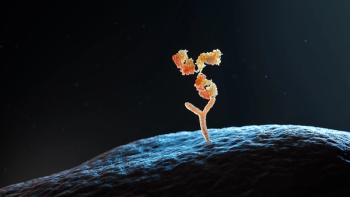
The Celsius Therapeutics acquisition will add CEL383, a potential first-in-class anti-TREM1 antibody for IBD, to AbbVie’s portfolio.

The Celsius Therapeutics acquisition will add CEL383, a potential first-in-class anti-TREM1 antibody for IBD, to AbbVie’s portfolio.

With the Proteologix acquisition, Johnson & Johnson gains two bispecific antibody early phase assets for immune-mediated diseases.

FDA’s priority review status was granted based on positive results from a Phase III study evaluating Sarclisa in combination with VRd in treating transplant-ineligible newly diagnosed multiple myeloma.

Under an agreement, Johnson & Johnson will acquire Numab Therapeutics’ wholly owned subsidiary to gain global rights to NM26, a bispecific antibody targeting atopic dermatitis.

Under this partnership, AGC Biologics and BioConnection will provide development and manufacturing capabilities for biopharmaceutical drug substance and drug product.

Biogen’s acquisition of HI-Bio includes lead investigational mAb, felzartamab, under development for treating a range of immune-mediated diseases.

In a $1.8 billion transaction, Genmab will gain three clinical-stage next-generation ADC candidates with its acquisition of ProfoundBio.

Innovation in this space depends on strategizing for GMP compliance and market access.

J&J’s nipocalimab is in development for reducing the risk of FNAIT in alloimmunized pregnant adults, a rare disease that may risk the life of the fetus or newborn.

AstraZeneca notes that Ultomiris is the first and only long-acting C5 complement inhibitor that offers NMOSD patients the potential to live without relapsing.

ProBioGen and Mapp Biopharmaceutical will use the former’s GlymaxX technology to develop a cell line for an afucosylated antibody that targets Marburg virus infection

EMA has validated two MAAs submitted by AstraZeneca and Daiichi Sankyo for datopotamab deruxtecan in two types of cancer.

Johnson & Johnson’s $2 billion acquisition of Ambrx boosts its pipeline of next-generation ADCs for cancer treatment.

Under a global license and collaboration agreement, AbbVie and OSE Immunotherapeutics will aim to develop OSE-230, a mAb for treating chronic inflammation.

Despite a growing number of biosimilar approvals, market uptake remains a challenge.

Nona Biosciences and Boostimmune will collaborate to develop ADCs against novel targets using Nona’s proprietary platform technology.

Under the new partnership, Samsung Biologics will develop and manufacture an antibody for a LegoChem Biosciences ADC candidate.

In the ATMP space, CGTs are hitting their stride with unprecedented approvals in the past year alone.

The milestone approval of a gene-edited therapeutic paves the way for gene-editing technologies.

The final guidance provides specific recommendations for CMC, pharmacology, toxicology, and clinical study design for CAR-T cell products.

Through the acquisition of Harpoon Therapeutics, Merck will gain an investigational delta-like ligand 3-targeting T-cell engager under development for cancer treatment.

In a deal worth up to $1.4 billion, GSK aims to acquire Aiolos Bio and gain an expanded pipeline of biologic-based respiratory therapeutic candidates.

MediWound has been granted an additional $6.7 million by the DoD to advance NexoBrid as a non-surgical field care solution for the US military.

Under the collaboration, Boehringer Ingelheim and Ribo will develop RNA-based therapeutics to treat NASH/MASH.

AstraZeneca’s acquisition of Gracell includes a clinical-stage autologous cell therapy targeting hematologic malignancies and autoimmune diseases and a proprietary manufacturing platform.